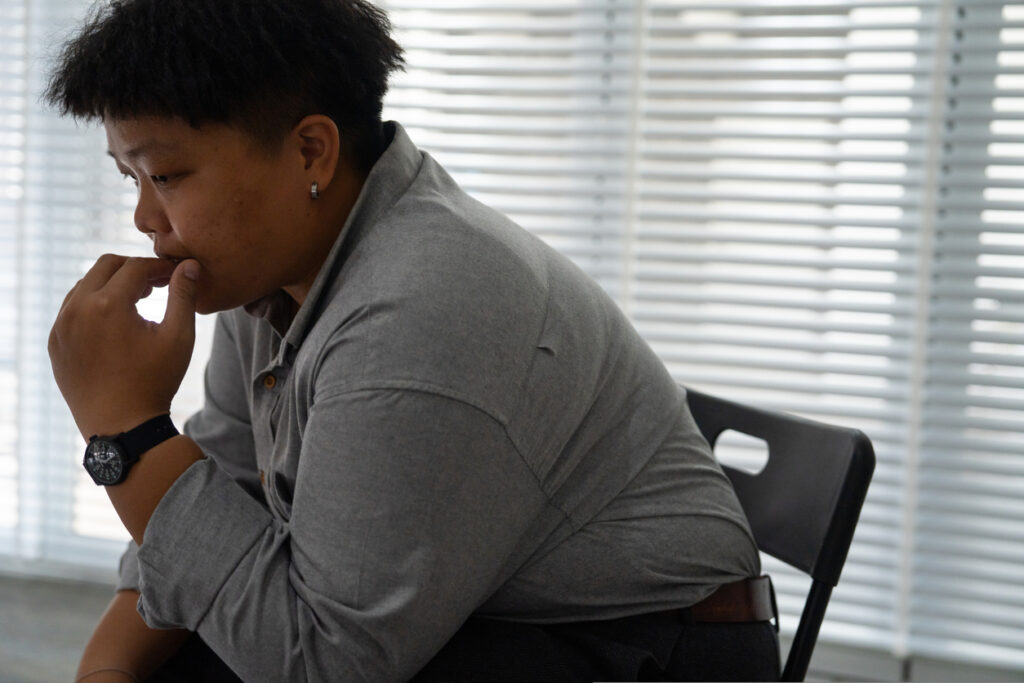Embarking on the path of substance use recovery requires resilience and determination, as it’s a transformative journey filled with unique challenges. One common obstacle that many individuals face is relapse, and it’s essential to navigate setbacks with compassion and determination. In this blog post, we will delve into the complexities of substance use recovery, discuss strategies for handling relapse, and explore how the holiday season can impact one’s journey toward sobriety.

Understanding Substance Use Recovery:
Recovery is a multifaceted journey encompassing physical, emotional, and psychological healing. It demands a combination of professional support, self-reflection, and lifestyle adjustments. Recognizing that recovery is an ongoing process, not a destination, is crucial for individuals committed to rebuilding their lives.
Dealing with Relapse:
Relapse can be disheartening, but approaching it with self-compassion is key. Strategies for handling relapse include:
- Self-Reflection and Understanding:
- Reflect on the circumstances surrounding the relapse.
- Identify triggers, stressors, or emotional challenges contributing to the setback.
- Use this self-awareness to foster personal growth and learning.
- Reach Out for Support:
- Seek support from friends, family, or a therapist.
- Share your experiences with those who can provide empathy and understanding.
- Attend support group meetings to connect with individuals who have faced similar challenges.
- Adjust Treatment Plan:
- Collaborate with healthcare professionals to reassess and adjust your treatment plan.
- Explore different therapeutic approaches or consider additional support services.
- Develop Coping Strategies:
- Learn and practice healthy coping mechanisms for stress and emotional triggers.
- Incorporate mindfulness, meditation, or exercise into your routine for stress management.
Staying Motivated:
Maintaining motivation throughout the recovery process is crucial for long-term success. Tips for staying motivated include:
- Set Realistic Goals:
- Break down the recovery journey into achievable, smaller goals.
- Celebrate each milestone, reinforcing a sense of accomplishment.
- Create a Supportive Environment:
- Surround yourself with positive influences and supportive individuals.
- Minimize exposure to environments or people that may trigger relapse.
- Practice Self-Care:
- Prioritize self-care activities, such as nutrition, exercise, and sufficient sleep.
- Engage in activities that bring joy and relaxation to maintain balance.
- Celebrate Progress, Not Perfection:
- Acknowledge that setbacks are a natural part of the recovery process.
- Focus on the progress made rather than dwelling on perceived failures.

Holiday Challenges:
The holiday season can introduce additional challenges for individuals in recovery. The festivities, family gatherings, and social events may trigger heightened emotions or expose individuals to tempting situations. It’s crucial to plan ahead, communicate boundaries, and prioritize self-care during this time. Connecting with support systems and having a strategy in place can help mitigate the impact of holiday-related stressors on the recovery journey.
Substance use recovery is a journey that demands perseverance and commitment. Handling relapse with self-compassion, seeking support, and implementing positive changes are essential aspects of the process. As we navigate the complexities of recovery, understanding the unique challenges that holidays can bring allows individuals to proactively manage their well-being. Remember, the commitment to recovery is a powerful force, and with resilience, individuals can overcome setbacks, learn from experiences, and achieve lasting success on their path to a healthier and fulfilling life.
Want to support our work?
